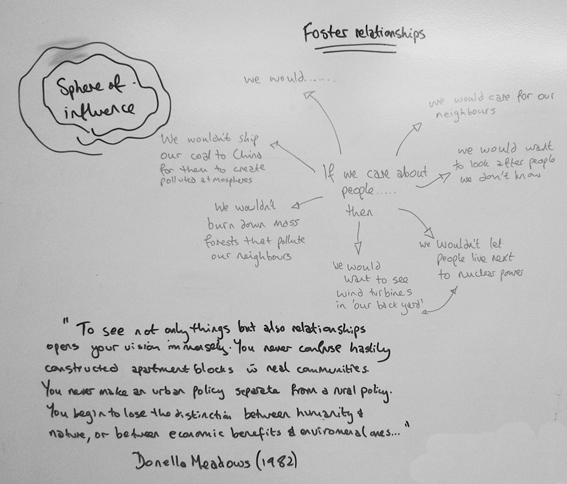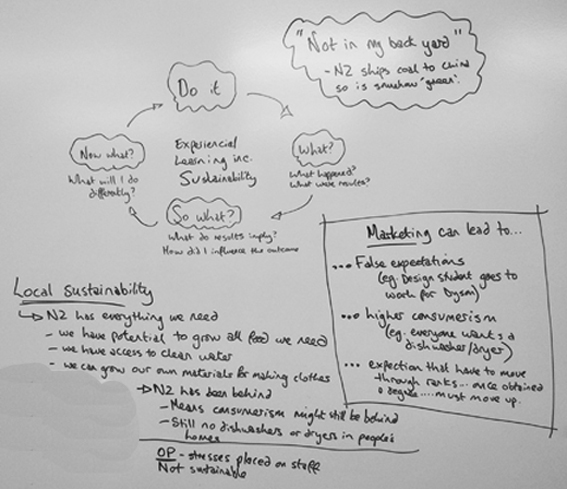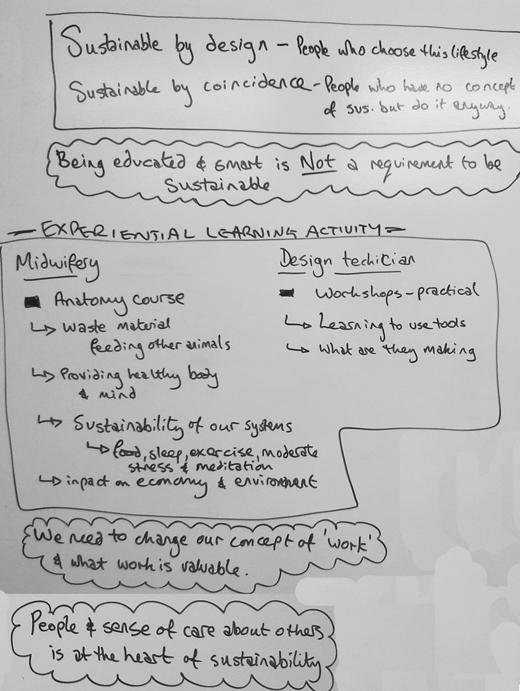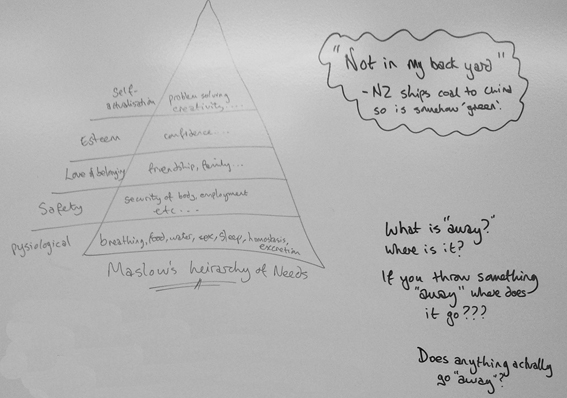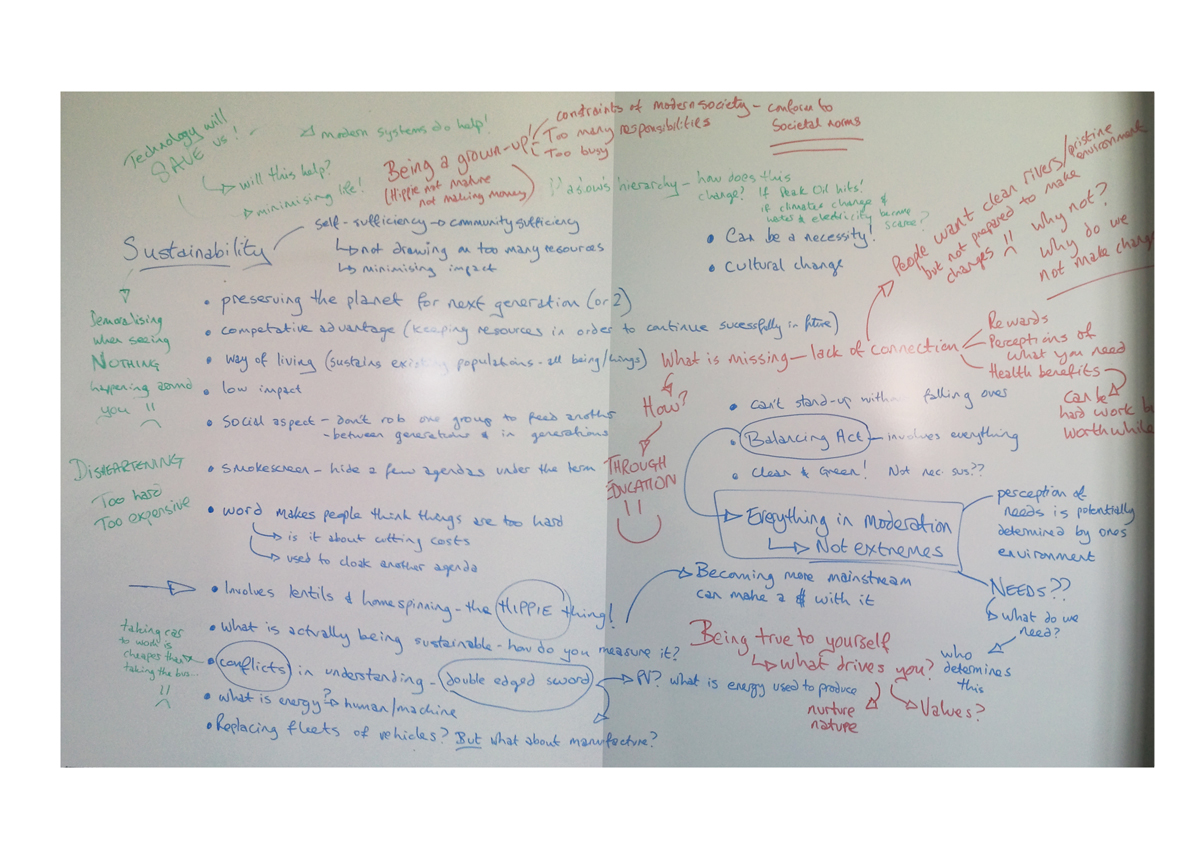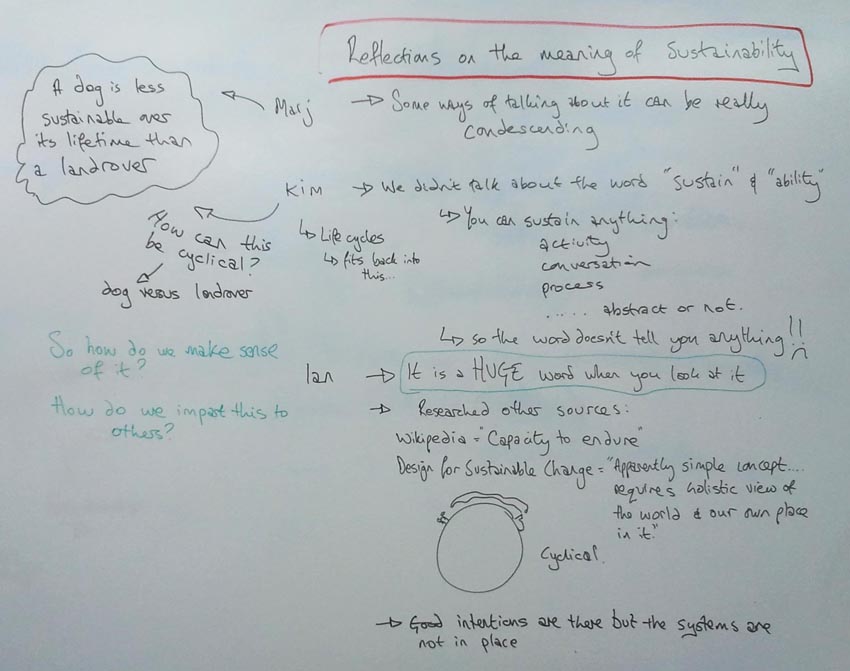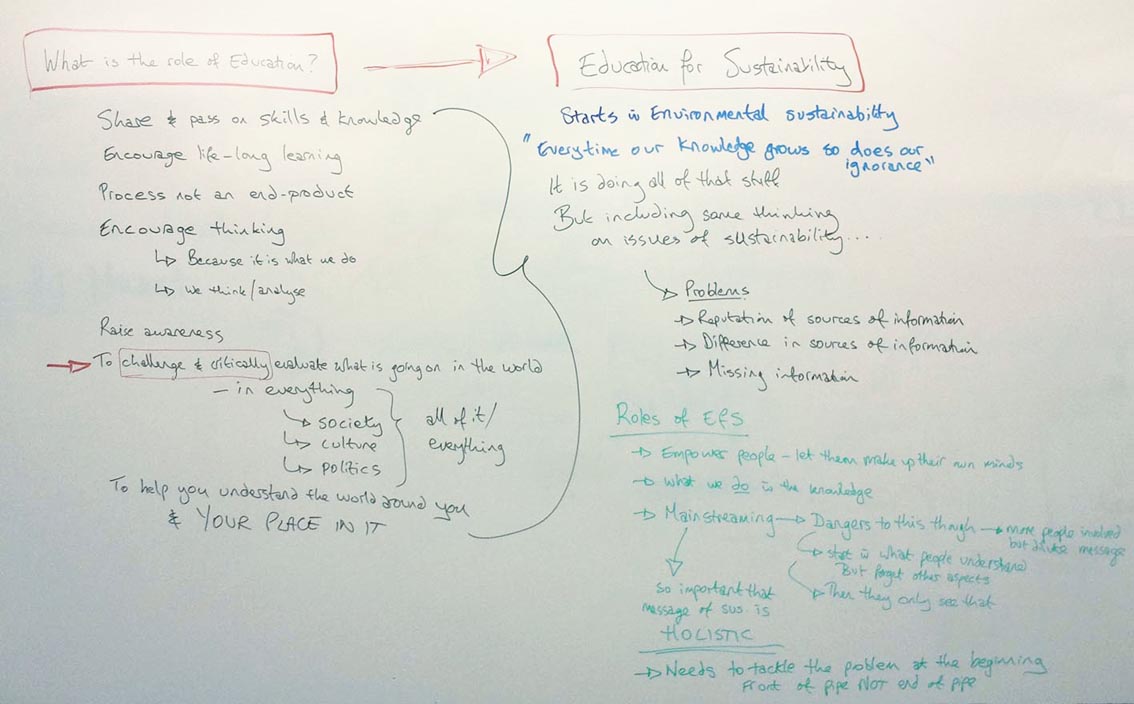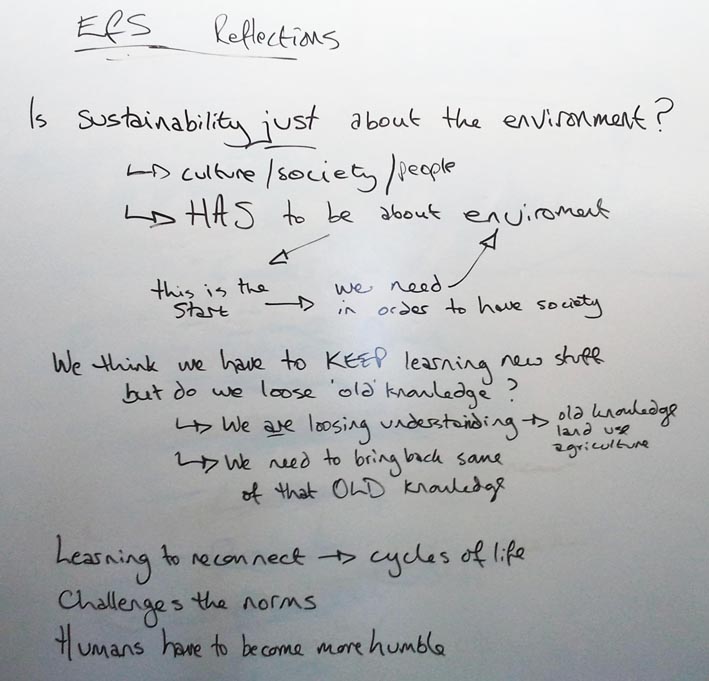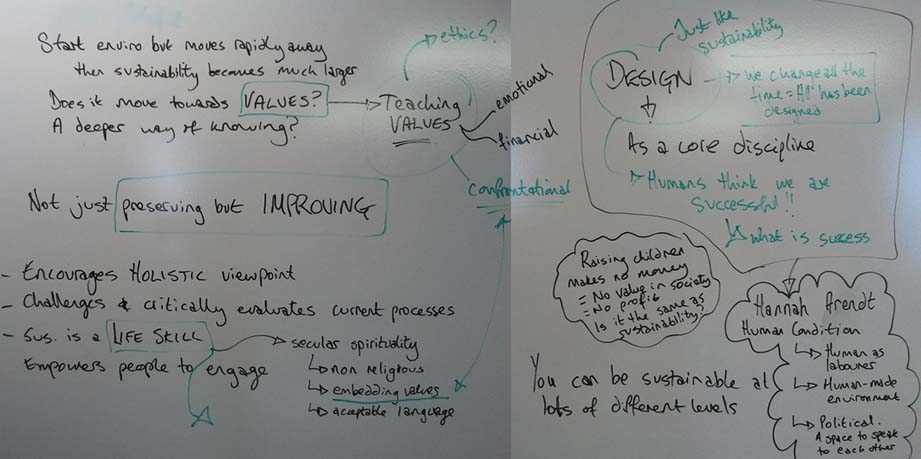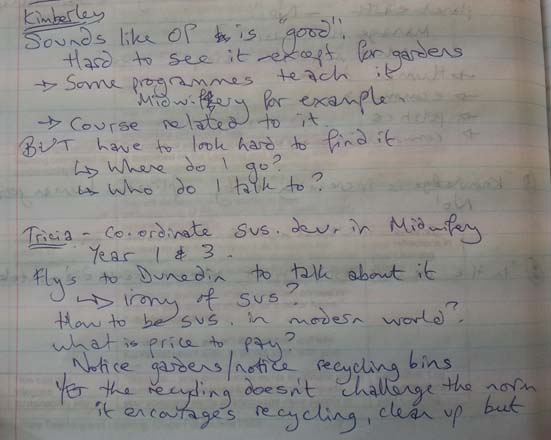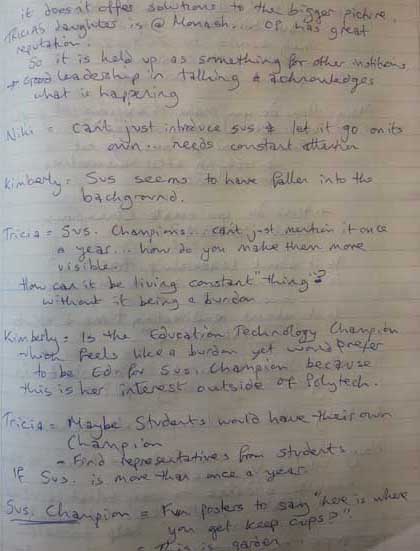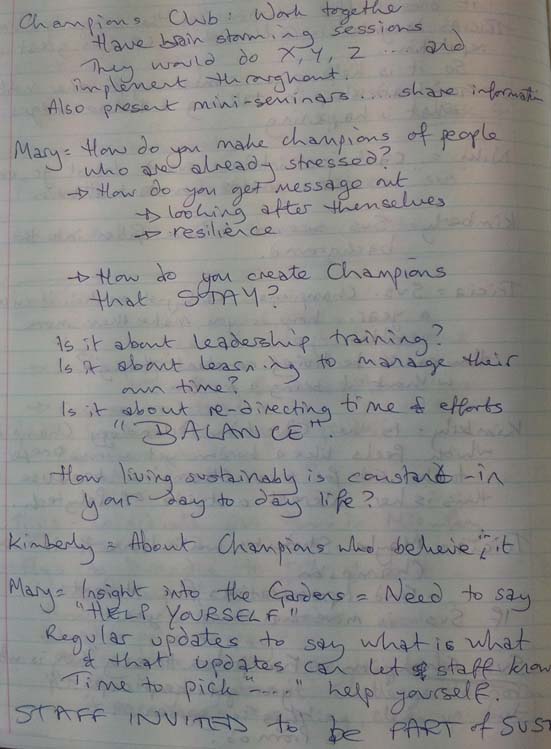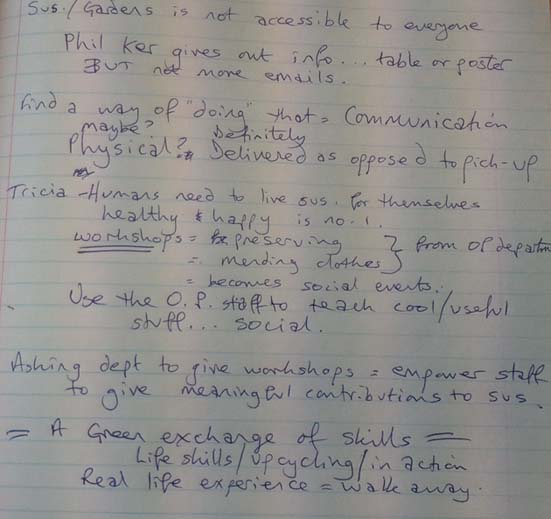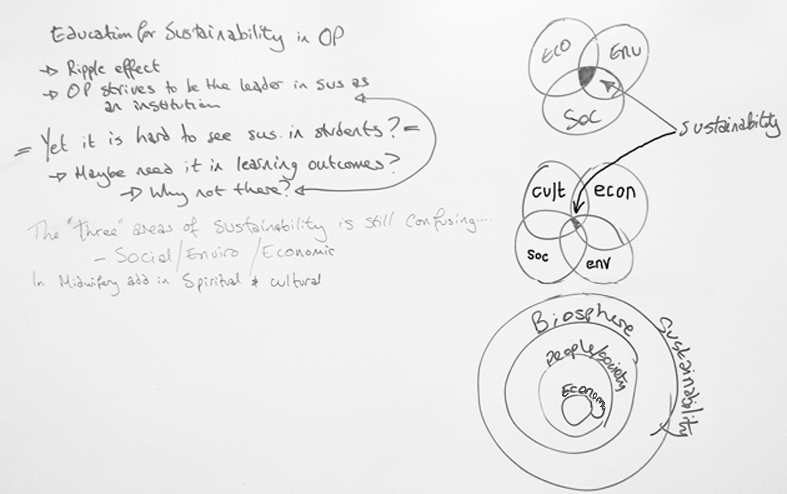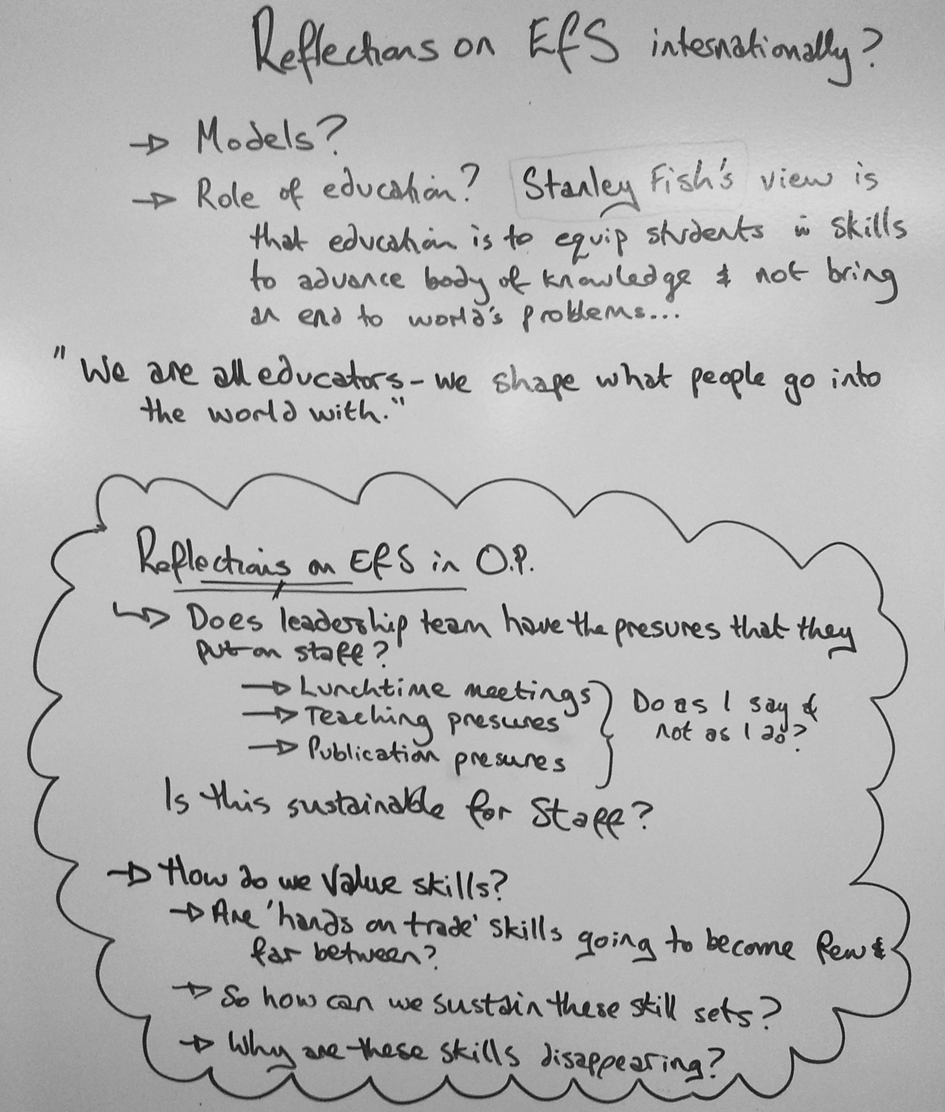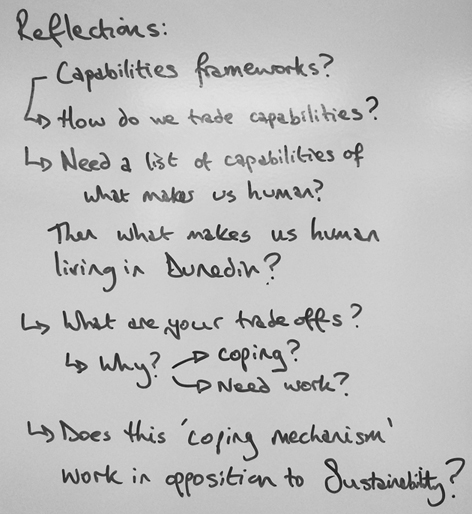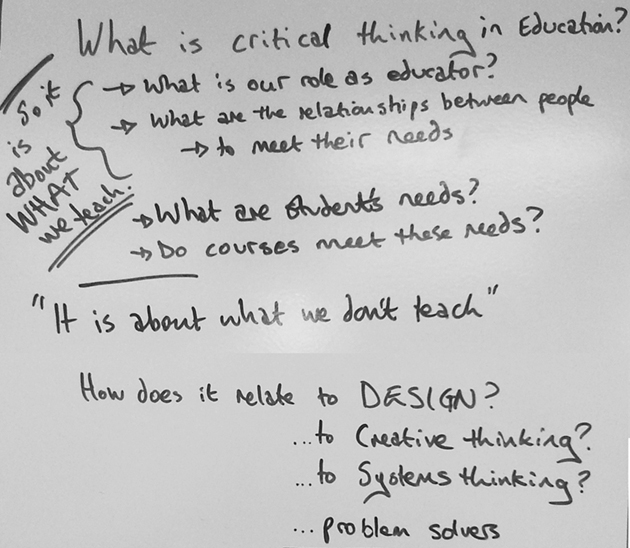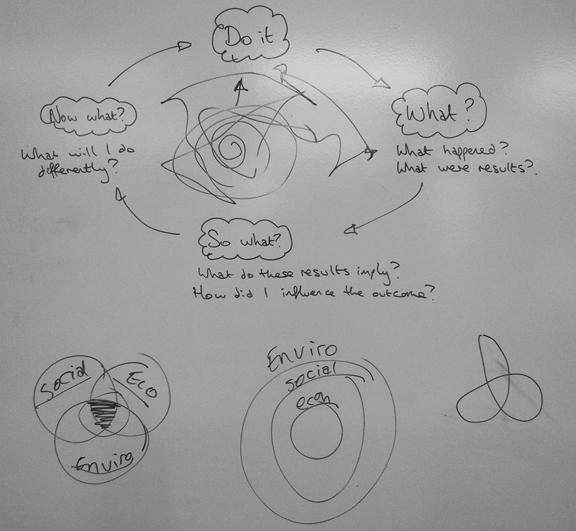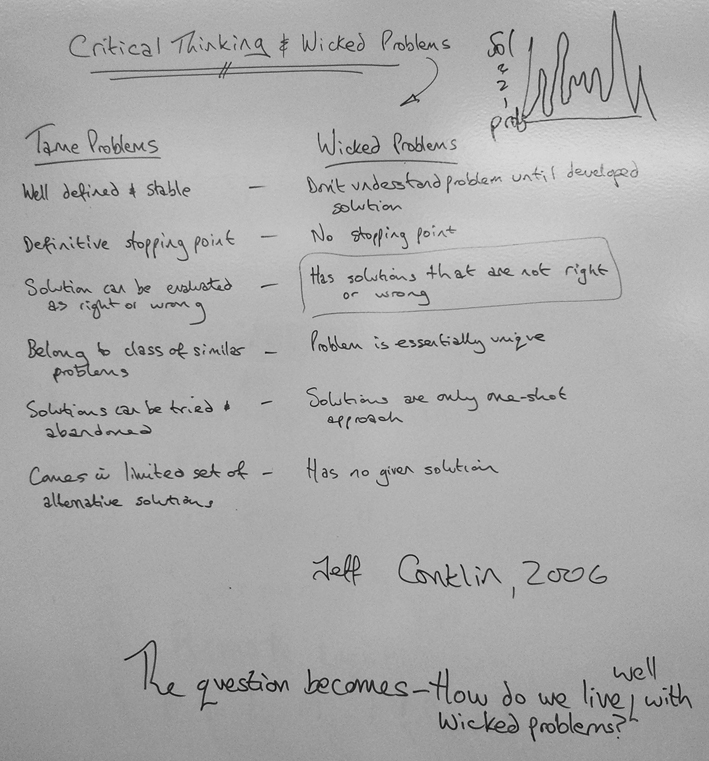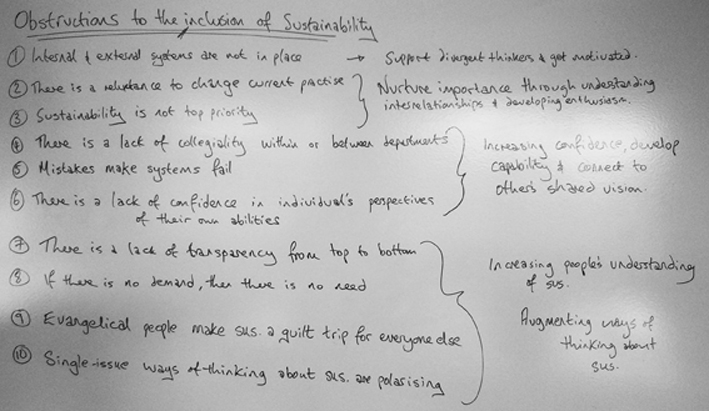Education for Sustainability/Weekly update
Contents
- 1 Week 1: Exploring what sustainability means
- 2 Week 2: Reflections from last week & exploring what education for sustainability means
- 3 Week 3: Reflections from last week & exploring the idea of Teaching Values and Sustainability
- 4 Week 4: Exploring what EfS means for OP
- 5 Week 5: Reflecting on what EfS means for OP and internationally (different models mean different things)
- 6 Week 6: Reflecting on EfS in OP and internationally (still)
- 7 Week 7: Experiential Learning and Wicked Problems
- 8 Week 8: How do you engage people in sustainability?
- 9 Week 9: How can you integrate sustainability into your teaching?
Week 1: Exploring what sustainability means
In this first week we began to explore what sustainability means. It is a word that has enormous and diverse meaning for different people. So what does it mean for you?
Week 2: Reflections from last week & exploring what education for sustainability means
In this second week we reflected on what we discussed in the previous week. The meanings of sustainability and also what we understand by education? what is education? Are the two connected?
Week 3: Reflections from last week & exploring the idea of Teaching Values and Sustainability
In this third week we reflected upon Education for Sustainability and the links between them. We also got a little off topic by exploring the word "values" and maybe we got a bit carried away with talking about teaching sustainability and comparing it to teaching values and what that might mean.
Week 4: Exploring what EfS means for OP
This fourth week focuses on what Education for Sustainability means for Otago Polytechnic. Some great ideas emerged as to how to build on and enhance the sustainability education already underway here at OP.
Week 5: Reflecting on what EfS means for OP and internationally (different models mean different things)
In this fifth week we looked at what Education for Sustainability means internationally. It lead us to explore our thinking about sustainability again, especially in terms of how we would draw it in a model form. There are many different ways to think abut sustainability and these are just 3 of them.
Week 6: Reflecting on EfS in OP and internationally (still)
This sixth week reflected on the connections between sustainability and the capabilities framework - coping mechanisms and trade-offs.
We also considered "what is critical thinking and how does it relate to sustainability?"
We finished with a quote about problem solving...
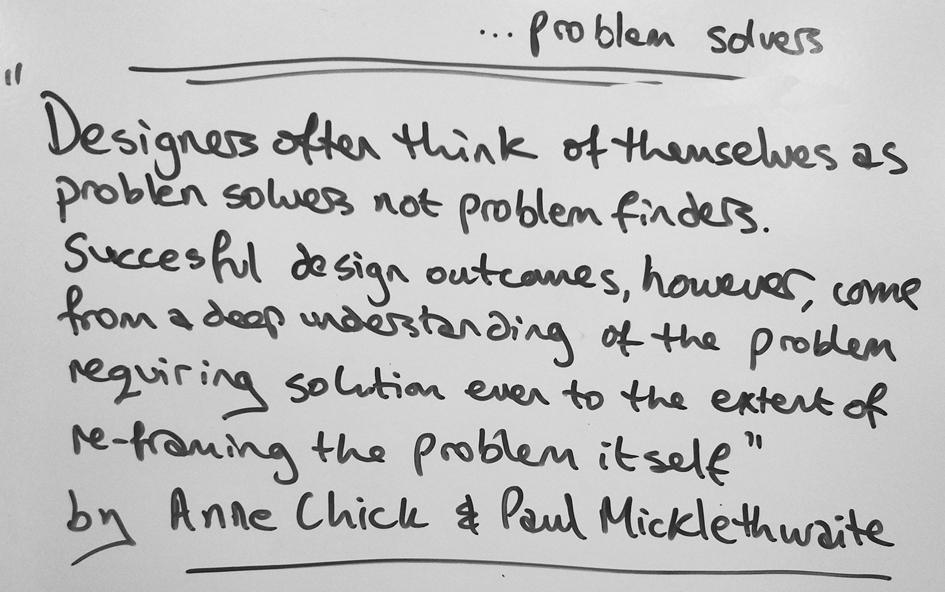
Week 7: Experiential Learning and Wicked Problems
This seventh week focused on the idea of experiential learning and how it relates to how we teach sustainability. Your second assessment is your experiential learning assignment, so get thinking about how you would design an experiential learning experience for your students, that specifically focuses on the inclusion of sustainability.
In this week we also looked at the notion of wicked problems. On the whiteboard we explored the difference between wicked and tame problems.
Week 8: How do you engage people in sustainability?
In this eighth week we explored we can engage people in sustainability, specifically students or colleagues. We looked at some of the barriers that some people might have when it comes to being open to the idea of sustainability. The right hand side begins to explore how we can help people get over these obstacles. If you would like to read more, then here is my final chapter File:Chapter 8 Nicola Bould PhD.pdf of my PhD thesis where I explore how we can overcome some of these obstructions to the inclusion of sustainability.
Week 9: How can you integrate sustainability into your teaching?
In this penultimate week we reflected on all that we have learned and discussed over the last 9 weeks.
